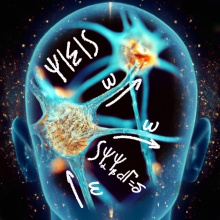Groundbreaking approach offers enhanced learning capabilities for complex phenomena
Artificial Intelligence and Machine Learning are widely used in mathematical computing and physical modeling. Deep Artificial Neural Networks are popular but rely on Gaussian distribution of neural signals, which may not be true in various applications. To address this, the team of researchers proposes Deep arbitrary Polynomial Chaos Neural Networks (DaPC NN), integrating homogeneous chaos theory into modern neural networks, allowing adaptive data-driven multi-variate orthonormal representations and capturing high-order neural effects.
Benchmarking reveals that the innovative integration of homogeneous chaos theory fundamentals outperforms conventional networks, offering enhanced learning capabilities for complex phenomena, for example in various industries, from finance and healthcare to autonomous systems and beyond.
However, further development is required to tackle the diverse challenges that arise during the learning of physical processes. The DaPC NN Matlab Toolbox is available online and users are invited to adopt it for own needs.
Publication:
Sergey Oladyshkin, Timothy Praditia, Ilja Kroeker, Farid Mohammadi, Wolfgang Nowak, Sebastian Otte. The deep arbitrary polynomial chaos neural network or how Deep Artificial Neural Networks could benefit from data-driven homogeneous chaos theory. Neural Networks, Volume 166, 2023, Pages 85-104. https://doi.org/10.1016/j.neunet.2023.06.036


